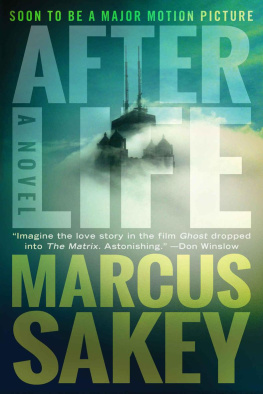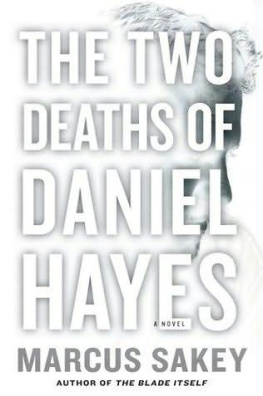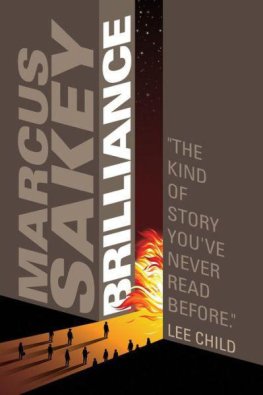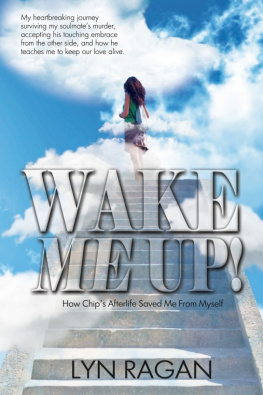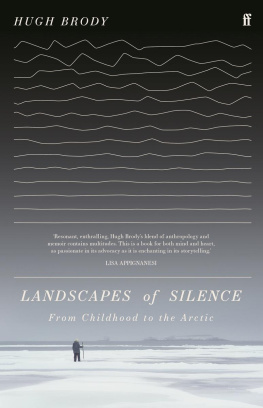PRAISE FOR MARCUS SAKEYS NOVELS
Stunning.
Publishers Weekly
Genius.
Chicago Tribune
Brilliant.
Huffington Post
Awesome.
Kirkus Reviews
Gripping.
io9
Surprising.
Library Journal
Triumphant.
Examiner
Compelling.
Booklist
Tour-de-force.
Cleveland Plain Dealer
Its depth and intelligence and passion and emotion that sets Sakey apart.
Lee Child
Epic, compulsively readable, and thought-provoking to the very last sentence.
Blake Crouch
Sakey is the master of the mindful page turner. Thrilling and funny and disturbing and sharp as hell.
Gillian Flynn
Sakey can flat-out write.
Don Winslow

OTHER TITLES BY MARCUS SAKEY
The Brilliance Trilogy
Brilliance
A Better World
Written in Fire
The Blade Itself
Accelerant
Good People
The Amateurs
The Two Deaths of Daniel Hayes
Scar Tissue (short stories)

This is a work of fiction. Names, characters, organizations, places, events, and incidents are either products of the authors imagination or are used fictitiously. Any resemblance to actual persons, living or dead, or actual events is purely coincidental.
Text copyright 2017 by Marcus Sakey
All rights reserved.
No part of this book may be reproduced, or stored in a retrieval system, or transmitted in any form or by any means, electronic, mechanical, photocopying, recording, or otherwise, without express written permission of the publisher.
Published by Thomas & Mercer, Seattle
www.apub.com
Amazon, the Amazon logo, and Thomas & Mercer are trademarks of Amazon.com, Inc., or its affiliates.
ISBN-13: 9781477848470 (hardcover)
ISBN-10: 1477848479 (hardcover)
ISBN-13: 9781477848401 (paperback)
ISBN-10: 1477848401 (paperback)
Cover design by Shasti OLeary Soudant
First edition
Its a joy and a privilege to make my living spinning stories.
And so beloved reader, fellow dreamer:
This book is for you, with gratitude.
CONTENTS
ONE
He was born into cramped alleys and foul air, fish-stink and garbage and the Bellmans call Remember the clocks, look well to your locks . London, in the year of their Lord 1532. Father in the wind, mother barely remembered, he grew on the streets, working when there was work, begging and stealing and renting himself when not, and when he first saw Persephone bobbing in a halo of sun on a cloudy day, he thought her a promise someone should have made him.
He was thin and pale and restless of mind, unclear why some were born to silks and some to slavery, and unwilling to let things lie. Edmund watched the caravel unload, watched the sailors stagger to land. Amongst them he saw an apprentice no older than himself, and he followed as they laughed their way to a filthy alehouse with a sign in the shape of an anchor, where they drank watered beer by the gallon. When the boy went for a piss in the alley, Edmund buried a blade in the nape of his neck, sliding it up and twisting.
The next morning Persephone sailed with a new apprentice. Edmund worked himself raw and always had a joke, and the men liked him, taught him the ways of salt and sail. He slept on the deck, woke to kicks and curses, to clean air and sunshine, and for the first time knew what it meant to be happy. He learned his knots and took his lashes, ate salt beef and dry ships biscuit infested with weevils, saw the New World and found it less than he had hoped, just land and trees and brown men.
The storm caught them two weeks into the return voyage. The sky was black and the sea was foam, and they journeyed not across the waves but up them, rising to the peaks of moving mountains, hanging for a heartbeat before plummeting into the canyons beyond. Edmund heard Persephone scream, watched the boatswain swept overboard along with the main mast, and as a wave high as Londons Tower blotted out the world, he lashed himself to the foredeck and thought of praying but didnt see the point.
He woke to a world scoured clean. The sun burned fierce and the sea lay smooth, and the ship rode low and crippled, masts and sails and most of her crew stripped away. Of clean rainwater there was plenty, but the hold had been torn open and cargo and provisions lost.
The captain, his chest crushed in the storm, lingered in fever for two days, crying out to the Lord; and perhaps the Lord heard him, for on the morning of the third he was dead. The seven remaining men looked at one another, each harboring the same thought but unwilling to speak it.
The rats that had once fouled their food became their food. But soon the rats were gone.
After two more days of hunger, the barber and the cook broke down the captains body. All of them ate, though no man looked at the others as he did so.
But Edmund, unwilling to let things lie, knew that with a split hull and no sails, any voyage to land would be a long one. A full belly made his mind sharp, and he saw that there was plenty of meat to be taken if a man had the will.
The barber was discovered in the hold, razor in his hand and throat open. A mortal sin, all agreed. This time there was no delay in eating, though still the men did not look at one another.
Persephone drifted, at the mercy of current and Christ.
When a sailors drowned body was found tangled in lines over the port side, the men agreed he must have fallen overboard in the night. They said a rough prayer, and the cook went to work.
And still there was no land. The sun burned furious and the wind did not blow.
In accident and suicide, one by one the crew fell, until at last there were only two. The cook declared it was punishment from God, that they were to wander forever to pay for the crime of eating another mans flesh.
Edmund agreed, and together they prayed forgiveness.
He killed the man with the same blade hed used to buy passage on Persephone . Edmund had watched as the cook had broken down the bodies of their companions, and though it was his first time, he thought he did well. He salted and smoked the meat, and ate his grisly rations staring at the horizon.
Weeks it had been since the storm broke them, and weeks more did Edmund drift.
And then one morning, long out of food, scorched delirious by the sun, he raised his head from the deck and saw land.
He wasnt more than a mile from it when he died.

It werent really so different.
Edmund splashed to shore, wobbly on steady land. Stood looking. Waiting for judgment. Prepared, after weeks of naught but sun and sea and the twisting emptiness of his belly, for either angelic choir or wine-taloned demon.
Neither appeared, nor any other soul beside. Water lapped the coast. The breeze stirred trees grown freakish tall. A shallow creek trickled into the sand.
Red berries adorned the bushes.
Edmund threw himself on them, devoured fruit by the sticky handful. After, he lay on his belly to suckle the seep of icy water. When hed had his fill he flopped on his back and reflected that the priests hadnt known so much. A hundred times hed eaten on their charity, promising his soul for a crust of bread, and always considered himself to have gotten the better of the bargain. Here now was proof of it.
Eventually, he set to walking.
Salt on one side, forest the other, but the sea he knew and the trees he feared. A child of London, hed never seen anything like it. Green grown so tall and tight that the space beneath was coolest shadow. Each breath of wind through the leaves seemed a whisper, a call to come lose himself, let dirt fill his mouth and roots grow through his chest.
Next page
